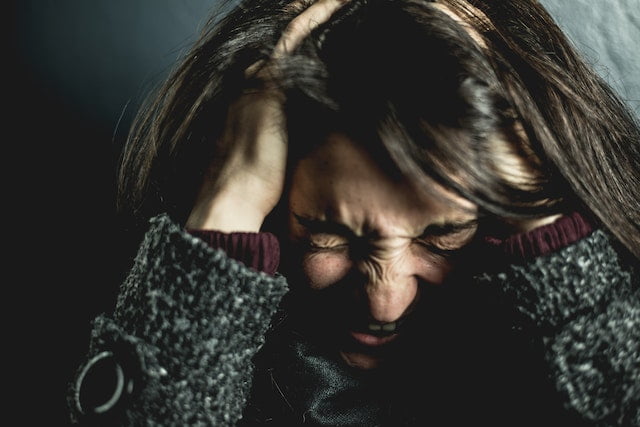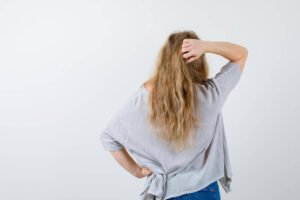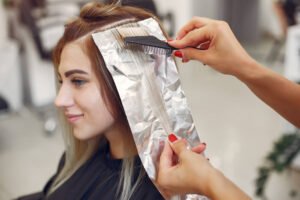Introduction
Imagine waking up one morning, standing in front of the mirror, and confronting a reality you could never have prepared for. Your hair, once a flourishing and vibrant crown, has gradually faded away, abandoning barren patches on your scalp. This is a scenario that occurs more frequently than we often acknowledge, affecting numerous individuals across the globe. However, the impact of hair loss extends beyond the visible surface; it reaches deep into the realm of emotions, setting off ripples that disrupt our self-assurance, distort our perception of our bodies, and shake our emotional balance. In the pages of this exploration, let’s navigate the intricate pathways of the emotional impact of hair loss, delving into the psychological voyage it entails. As we venture further, we’ll unveil coping strategies that have the potential to metamorphose this journey into one that’s more navigable and empowering.
The Unseen Burden: Hair Loss and Emotional Strain
Hair Loss: More Than Meets the Eye
Hair, often considered a symbol of youth and attractiveness, can deeply shape our identity. Hair, often more than we realize, plays a substantial part in shaping the image we project to the world. It’s intertwined with our identity, reflecting both our inner selves and our outward appearance. Yet, when the intricate fabric of hair starts to unravel due to hair loss, it’s not solely a physical shift that we’re contending with. Instead, what unfolds is a profound struggle to reshape the canvas of our self-perception.
Impact on Self-Esteem and Body Image: Unraveling the Emotional Layers
The emotional impact of hair loss intricately weaves itself into an individual’s self-esteem and body image. For those facing hair loss, it’s often a jarring experience that ushers in feelings of powerlessness over their appearance, elevating their self-consciousness to new heights. In a way, it’s as though a fragment of their self-identity has been disrupted, instigating a poignant questioning of their inherent value. As this emotional journey unfolds, you might witness a withdrawal from once-enjoyed social gatherings and activities, a consequence of this internal shift from self-assuredness to an unsettling cloud of self-doubt that taints the hues of their emotional landscape.
The Emotional Phases of Hair Loss
Shock and Denial: The Initial Impact
The discovery of hair loss can trigger a shock that ripples through one’s emotional landscape. It’s quite usual for people to initially deny the truth, perhaps in the hope that the situation might naturally resolve itself. This initial phase, though fleeting, often sets the stage for the emotional whirlwind that ensues.
Anger and Resentment: Searching for a Culprit
As the truth of hair loss settles in, anger can emerge. Individuals might direct this anger at themselves, their genetics, or external factors. This is a pivotal phase, as managing the anger can prevent it from consuming one’s emotional well-being.
Depression and Isolation: Navigating Emotional Lows
Depression often makes an appearance when hair loss is prolonged. The altered self-image and societal pressures to conform to certain beauty standards can lead to feelings of inadequacy and isolation. The reflection in the mirror may no longer align with one’s mental image of oneself, triggering deep sadness.
Acceptance and Coping: Finding Emotional Equilibrium
Reaching acceptance doesn’t necessarily mean embracing hair loss; rather, it involves acknowledging the new reality and adapting to it. This phase marks the beginning of healing, as individuals explore coping mechanisms and support systems to rebuild their emotional resilience.
Coping Strategies for Emotional Well-being
Seeking Professional Support: Therapists and Counselors
Much like the way hair loss imprints its effect on our outward appearance, its resonance extends to the realms of our mental and emotional well-being. This is the juncture where the proficiency of skilled therapists and counselors becomes pivotal. They provide a sanctuary where individuals can openly articulate their emotions, unravel the complexities of their thoughts, and forge strategies designed specifically to navigate the intricate maze of challenges that hair loss bestows upon them.
Building Support Networks: Friends and Family
Hair loss doesn’t have to be faced alone. Sharing the experience with trusted friends and family members can foster a sense of belonging and emotional support. Their encouragement and empathy can serve as a buffer against the emotional toll.
Exploring Self-Care Rituals: Nurturing the Self
Engaging in self-care activities can promote emotional healing. Whether it’s practicing mindfulness, adopting a fitness routine, or exploring creative outlets, these activities can redirect focus away from hair loss and towards self-nurturing.
Embracing Change and Rediscovering Self-Worth
Shifting Perspectives: Redefining Beauty
The emotional impact of hair loss can initiate a profound journey of self-discovery. It challenges individuals to redefine their understanding of beauty and self-worth beyond physical appearances. Just as a tree’s strength isn’t solely defined by its leaves, a person’s worth isn’t solely determined by their hair.
Embracing Diversity: Challenging Societal Norms
The experience of hair loss opens up conversations about diversity and challenges societal norms. It encourages us to celebrate uniqueness and question the rigid standards of beauty perpetuated by media and culture.
Conclusion
Hair loss is more than a physical transformation; it’s a journey laden with emotional twists and turns. Navigating through the intricate terrain of emotions demands inner resilience, a generous dose of self-compassion, and the comforting embrace of a supportive circle. As our journey in this article has unfolded, the emotional repercussions of hair loss have emerged as a powerful force. Yet, it’s important to realize that within this impact lies the potential for personal evolution, the embrace of self-acceptance, and a revitalized understanding of what beauty truly entails. Let’s keep in mind that it’s not the hair atop your head that defines you; it’s the luminous beauty and unwavering strength that emanate from within, regardless of the shifts that unfold externally.
Disclaimer: The information provided in this article is for informational purposes only and should not be considered as medical advice. Always consult with a qualified healthcare professional before making any decisions regarding your health or treatments. For more information, please read our Medical Disclaimer.
Frequently Asked Questions:
- Is it normal to feel emotionally affected by hair loss?
Absolutely. Hair loss carries emotional weight beyond the physical changes. It’s a common reaction to feel a range of emotions, from shock to sadness, as hair is intricately tied to our self-image. - Can hair loss lead to serious mental health issues?
While hair loss itself might not directly cause mental health disorders, it can exacerbate existing conditions or trigger feelings of anxiety and depression. Seeking support from professionals is crucial if you notice significant emotional distress. - How can I boost my self-esteem during hair loss?
Building self-esteem involves nurturing aspects of yourself beyond your appearance. Indulge in pursuits that ignite your passion, whether it’s a creative endeavor, a physical activity, or a cherished hobby. Cultivate connections with those who offer unwavering support – friends and family who uplift you. And above all, carve out moments for self-care rituals that weave a tapestry of self-love, nurturing your emotional well-being. - Will wearing wigs or hairpieces help with the emotional impact of hair loss?
Wigs and hairpieces can offer a temporary solution to help restore your appearance, which might positively influence your emotional well-being. However, it’s essential to address the underlying emotional journey as well, potentially through therapy or support groups. - Are there any silver linings to the emotional experience of hair loss?
Yes, there can be. Some individuals find that their hair loss journey leads to personal growth, increased empathy, and a broader perspective on beauty standards. It can be a catalyst for embracing uniqueness and redefining self-worth beyond appearances.
References:
- Smith, A. M., & Smith, L. M. (2020). The Psychological Impact of Hair Loss and Its Implications for Treatment. Clinical, Cosmetic and Investigational Dermatology, 13, 851-859.
- Jackson, C. (2019). Hair Loss and Its Emotional Impact: A Review of the Literature. Psychology Today.
- American Hair Loss Association. (2022). Coping with Hair Loss.
- National Alopecia Areata Foundation. (2023). Coping with Emotional Impact.
- Kobren, S. (Host). (2021). The Bald Truth: The Emotional Journey of Hair Loss [Audio Podcast]. The Bald Truth.
- Rosenberg, L. (2018). Beautifully Bald: How Hair Loss Can Be Empowering. TEDx Talks.




